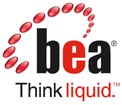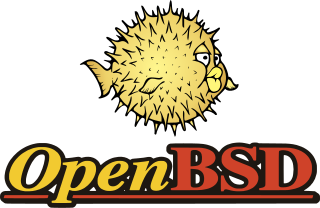Related Research Articles

arXiv is an open-access repository of electronic preprints and postprints approved for posting after moderation, but not peer review. It consists of scientific papers in the fields of mathematics, physics, astronomy, electrical engineering, computer science, quantitative biology, statistics, mathematical finance and economics, which can be accessed online. In many fields of mathematics and physics, almost all scientific papers are self-archived on the arXiv repository before publication in a peer-reviewed journal. Some publishers also grant permission for authors to archive the peer-reviewed postprint. Begun on August 14, 1991, arXiv.org passed the half-million-article milestone on October 3, 2008, and had hit a million by the end of 2014. As of April 2021, the submission rate is about 16,000 articles per month.

Solaris is a proprietary Unix operating system originally developed by Sun Microsystems. After the Sun acquisition by Oracle in 2010, it was renamed Oracle Solaris.
Gentoo Linux is a Linux distribution built using the Portage package management system. Unlike a binary software distribution, the source code is compiled locally according to the user's preferences and is often optimized for the specific type of computer. Precompiled binaries are available for some larger packages or those with no available source code.

Apache Subversion is a software versioning and revision control system distributed as open source under the Apache License. Software developers use Subversion to maintain current and historical versions of files such as source code, web pages, and documentation. Its goal is to be a mostly compatible successor to the widely used Concurrent Versions System (CVS).

Theo de Raadt is a South African-born software engineer who lives in Calgary, Alberta, Canada. He is the founder and leader of the OpenBSD and OpenSSH projects and was also a founding member of NetBSD. In 2004, De Raadt won the Free Software Award for his work on OpenBSD and OpenSSH.

Open access (OA) is a set of principles and a range of practices through which research outputs are distributed online, free of access charges or other barriers. With open access strictly defined, or libre open access, barriers to copying or reuse are also reduced or removed by applying an open license for copyright.

BEA Systems, Inc. was a company that specialized in enterprise infrastructure software products which was wholly acquired by Oracle Corporation on April 29, 2008.
In library and archival science, digital preservation is a formal endeavor to ensure that digital information of continuing value remains accessible and usable. It involves planning, resource allocation, and application of preservation methods and technologies, and it combines policies, strategies and actions to ensure access to reformatted and "born-digital" content, regardless of the challenges of media failure and technological change. The goal of digital preservation is the accurate rendering of authenticated content over time. The Association for Library Collections and Technical Services Preservation and Reformatting Section of the American Library Association, defined digital preservation as combination of "policies, strategies and actions that ensure access to digital content over time." According to the Harrod's Librarian Glossary, digital preservation is the method of keeping digital material alive so that they remain usable as technological advances render original hardware and software specification obsolete.

Git is a software for tracking changes in any set of files, usually used for coordinating work among programmers collaboratively developing source code during software development. Its goals include speed, data integrity, and support for distributed, non-linear workflows.
A virtual tape library (VTL) is a data storage virtualization technology used typically for backup and recovery purposes. A VTL presents a storage component as tape libraries or tape drives for use with existing backup software.
PubMed Central (PMC) is a free digital repository that archives open access full-text scholarly articles that have been published in biomedical and life sciences journals. As one of the major research databases developed by the National Center for Biotechnology Information (NCBI), PubMed Central is more than a document repository. Submissions to PMC are indexed and formatted for enhanced metadata, medical ontology, and unique identifiers which enrich the XML structured data for each article. Content within PMC can be linked to other NCBI databases and accessed via Entrez search and retrieval systems, further enhancing the public's ability to discover, read and build upon its biomedical knowledge.
Innovative Interfaces, Inc. is a software company specializing in integrated systems for library management. Their key products include Sierra, Polaris, Millennium, and Virtua, with customers in 66 countries. Innovative was acquired by Ex Libris in January 2020. On December 1, 2021, Clarivate completed their acquisition of ProQuest and, by extension, Innovative.

VTLS Inc. was a global company that provided library automation software and services to a diverse customer base of more than 1900 libraries in 44 countries. The for-profit company was founded in 1985 by Dr. Vinod Chachra, who became the President and CEO of the company. VTLS originated as "Virginia Tech Library Systems", an automated circulation and cataloging system created for Virginia Tech’s Newman Library in 1975. In addition to its headquarters in Blacksburg, Virginia, United States, VTLS had five international offices in Australia, Brazil, India, Malaysia and Spain. VTLS was one of the few ISO 9001:2008 quality-certified companies within the library industry for many years. The company was acquired by Innovative Interfaces in 2014.

FreeBSD is a free and open-source Unix-like operating system descended from the Berkeley Software Distribution (BSD), which was based on Research Unix. The first version of FreeBSD was released in 1993. In 2005, FreeBSD was the most popular open-source BSD operating system, accounting for more than three-quarters of all installed and permissively licensed BSD systems.
PREservation Metadata: Implementation Strategies (PREMIS) is the de facto digital preservation metadata standard.

OpenBSD is a security-focused, free and open-source, Unix-like operating system based on the Berkeley Software Distribution (BSD). Theo de Raadt created OpenBSD in 1995 by forking NetBSD. According to the website, the OpenBSD project emphasizes "portability, standardization, correctness, proactive security and integrated cryptography."

The .NET Framework is a proprietary software framework developed by Microsoft that runs primarily on Microsoft Windows. It was the predominant implementation of the Common Language Infrastructure (CLI) until being superseded by the cross-platform .NET project. It includes a large class library called Framework Class Library (FCL) and provides language interoperability across several programming languages. Programs written for .NET Framework execute in a software environment named the Common Language Runtime (CLR). The CLR is an application virtual machine that provides services such as security, memory management, and exception handling. As such, computer code written using .NET Framework is called "managed code". FCL and CLR together constitute the .NET Framework.

Trove is an Australian online library database aggregator and service which includes full text documents, digital images, bibliographic and holdings data of items which are not available digitally, and a free faceted-search engine as a discovery tool. The database includes archives, images, newspapers, official documents, archived websites, manuscripts and other types of data. Hosted by the National Library of Australia in partnership with content providers, including members of the National and State Libraries Australia, it is one of the most well-respected and accessed GLAM services in Australia, with over 70,000 daily users.

Open access (OA) to academic publications has seen extensive growth in Australia since the first open access university repository was established in 2001 and OA is a fundamental part of the scholarly publishing and research landscape in Australia. There are open access policies at the two major research funders: The National Health and Medical Research Council (NHMRC) and Australian Research Council (ARC) and around half of Australian Universities have an OA policy or statement. Open Access Australasia, the Council of Australian University Librarians (CAUL), and the Australian Library and Information Association (ALIA) are advocates for Open Access and related issues in Australia.
Plan S is an initiative for open-access science publishing launched in 2018 by "cOAlition S", a consortium of national research agencies and funders from twelve European countries. The plan requires scientists and researchers who benefit from state-funded research organisations and institutions to publish their work in open repositories or in journals that are available to all by 2021. The "S" stands for "shock".
References
- ↑ "VTLS partners with Fretwell-Downing to deliver resource sharing solution to VIRTUA and VITAL customers". Library Technology Guides. January 9, 2004. Retrieved June 4, 2022.
- ↑ "Press Release: VTLS Announces VITAL 2.0 Implementations". VTLS. November 29, 2005. Archived from the original on October 27, 2007.
- ↑ "More OA repositories coming to Australia". Open Access News. December 2, 2005.
- ↑ Michael Rogers (February 1, 2006). "VTLS Releases VITAL 2.0". Library Journal.
- ↑ "VTLS announces Vital 2.0 implementations". Access (55). December 2005. ISSN 0217-5673.
- ↑ "Innovative Acquires VTLS". Archived from the original on 2017-06-28.